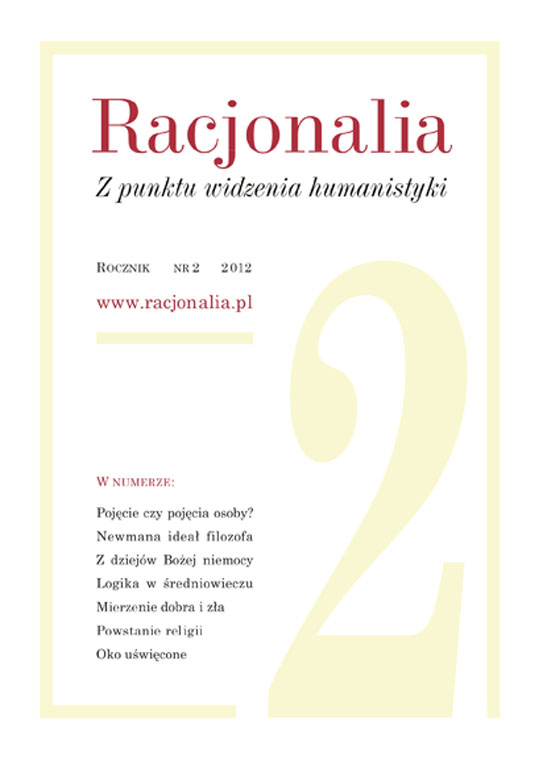Filozofia wyboru Sørena Kierkegaarda i Barucha Spinozy a teoria prawa
DOI:
https://doi.org/10.15633/r.255Słowa kluczowe:
criminal law, determinism, free will, God, philosophy of choice, theory of law, Kierkegaard S., Spinoza B.Abstrakt
Lawyers who deal with applying law in practice very often are not aware of many hidden suppositions, which justify the existence of law and make it reasonable. It is obvious that in discovering them philosophy can be helpful. The main part of this article is the analysis of the thought of two European philosophers: S. Kierkegaard and B. Spinoza. The important field of their interest was a philosophy of human existence. Its significant element is liberty. The attitude to it creates their visions of being.
Kierkegaard is well known as the author of „three periods of human life (esthetical, ethical and religious)” concept. In his opinion the necessary element of any progress in existence is taking the plunge and changing the way of life. It is possible by dint of liberty. A totally different vision can be found in Spinosa’a „Ethics more geo-metrico”. The author wants to convince us that the potentiality of making decisions is only an illusion.
The possible consequences of the acceptance of such a vision were shown very briefly; the goal of the paper is also to demonstrate that since the beginning of our civilisation we have had to assume a concept similar to Kierkegaardian’s.
Pobrania
Opublikowane
Numer
Dział
Licencja
Twórca oświadcza, że służą mu prawa autorskie do utworu i że nie są ograniczone w zakresie objętym niniejszym oświadczeniem oraz że utwór jest dziełem oryginalnym i nie narusza praw autorskich innych osób.
Twórca zezwala Uniwersytetowi Papieskiemu Jana Pawła II w Krakowie na nieodpłatne, niewyłączne i nieograniczone w czasie korzystanie z utworu, to jest:
- utrwalanie i zwielokrotnianie: wytwarzanie egzemplarzy utworu techniką drukarską, reprograficzną, zapisu magnetycznego oraz techniką cyfrową;
- obrotu oryginałem albo egzemplarzami, na których utwór utrwalono (wprowadzanie do obrotu, użyczenie lub najem oryginału albo egzemplarzy, publiczne wystawienie, wyświetlenie, a także publiczne udostępnianie utworu w taki sposób, aby każdy mógł mieć do niego dostęp w miejscu i w czasie przez siebie wybranym);
- włączenie utworu w skład utworu zbiorowego;
- udzielanie przez Uniwersytet Papieski Jana Pawła II w Krakowie sublicencji Creative Commons Uznanie autorstwa-Użycie niekomercyjne-Bez utworów zależnych 3.0 Polska
Uniwersytet Papieski Jana Pawła II w Krakowie udostępnia utwór na Platformie Czasopism należącej do uczelni, na licencji Creative Commons Uznanie autorstwa-Użycie niekomercyjne-Bez utworów zależnych 3.0 Polska. Tym samym uprawnia wszystkich zainteresowanych do korzystania z utworu pod następującymi warunkami:
- zostanie podany autor i tytuł utworu,
- zostanie podane miejsce publikacji (tytuł czasopisma i adres internetowy do oryginalnie opublikowanego utworu),
- utwór będzie dystrybuowany w sposób niekomercyjny,
- nie będą tworzone utwory zależne.

